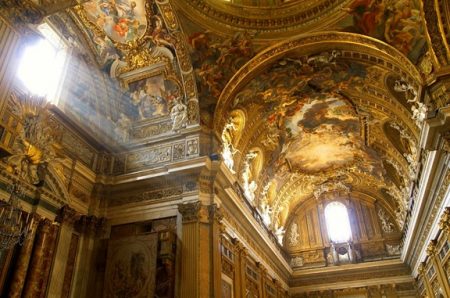Conversion from Protestantism to Roman Catholicism has received attention over recent years, partly on account of autobiographies that describe the movement. For example, in 1993, a Presbyterian graduate of Gordon-Conwell, Scott Hahn, published Rome Sweet Home: Our Journey to Catholicism. In 1994, Professor Thomas Howard wrote his story, Lead, Kindly Light: My Journey to Rome. Two years later, David Currie wrote Born Fundamentalist, Born Again Catholic. In 2009, Frank Beckwith, after his election to the presidency of the Evangelical Theological Society, wrote Return to Rome: Confessions of an Evangelical Catholic. In 2011, radio host and columnist, Michael Coren wrote, Why Catholics Are Right. And in the same year Professor Christian Smith of Notre Dame wrote his story in a how-to book titled: How to Go from Being a Good Evangelical to a Committed Catholic in Ninety-Five Difficult Steps. These narratives and others like them have garnered considerable attention.
In light of the above, I am regularly asked to comment on how the movement toward Rome compares in size with the number of converts (like me) who have left the Catholic Church for Protestant pastures. Without objective data, answers to this question have been anecdotal. My own response has been indebted to interviews that I conducted for my book, Holy Ground: Walking with Jesus as a Former Catholic. Thankfully, a new survey by the Pew Research Center provides us with current statistics which bring the picture into somewhat sharper focus. Here is a summary of what it says:
In contrast with the unaffiliated, Catholicism has experienced the greatest net losses due to religious switching. Nearly a third of all U.S. adults (31.7%) were raised Catholic, and most of them continue to identify as Catholics today. But nearly 13% of all Americans are former Catholics – people who no longer identify with the faith despite having been raised in the Catholic Church. By comparison, there are far fewer converts to Catholicism; 2% of all U.S. adults now identify as Catholics after having been raised in another religion or without a religion. This means that there are more than six former Catholics for every convert to Catholicism. No other religious group analyzed in the survey has experienced anything close to this ratio of losses to gains via religious switching [emphasis added].
According to this study, there are currently 6.8 million converts to Catholicism in the U.S. who have been raised in another religion (or in no religion at all). To be sure, that’s a lot of catechumens (exactly how many come from evangelicalism, we don’t know); however, while such individuals have entered the Catholic Church, there are also 41.3 million who have left (13% of Americans). Among these disenchanted Catholics, 15.9 million have found their way into Protestant churches of some sort (based on an earlier Pew Forum study, updated in February of 2011).
Obviously, one’s identification with Protestantism does not mean that he or she necessarily possesses a committed and informed faith. There are plenty of churchgoers in all sorts of denominations who haven’t the foggiest idea of what the Bible says about the gospel of Jesus Christ. The point of the above data is to indicate that there are massive numbers of people in America with a Catholic background who are without an earnest and biblically focused faith. Among such people we are called to embody and communicate the good news of Christ.
The enterprise of conveying the gospel to individuals from a Catholic background requires insight into the particular values and priorities of such people, values that emerge from sacramental structures and a cultural matrix which are quite different from Protestantism. Unfortunately, while some books explain Catholic doctrine, precious few consider the patterns of belief and practice among Catholic people, insights that are necessary for constructive conversation. It was for this reason that I have written Talking with Catholics about the Gospel. Here is the heartbeat of the book:
In the coming weeks we will address some of the chief questions associated with gospel witness among Catholic friends and loved ones. Stay tuned.





